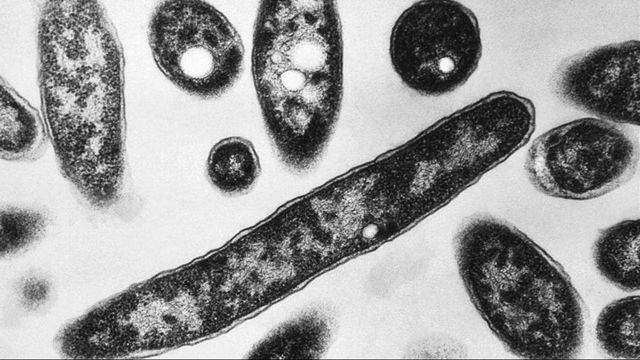3 cases of Legionnaires' disease possibly linked to Wake County hotel
Wake County Public Health has identified a third case of Legionnaires' disease possibly linked to a Wake Forest hotel.
Posted — UpdatedOn June 3, the county reported two diagnosed cases of Legionnaires' disease. A third case was reported Thursday.
Before they became ill, Wake County Public Health said the three people visited the Clarion Pointe Wake Forest Hotel. The county said two individuals were recovering after treatment, but no additional details were shared on the latest case.
Legionnaires' disease is a type of pneumonia caused by a type of bacteria called Legionella that are found usually in water.
“Legionnaires disease is rare but dangerous," said Alexa Mieses Malchuk with UNC Health. "It looks just like any other case of pneumonia. The only way you can tell whether or not it’s legionnaires is to get tested.”
Malchuk said the bacteria is not normally transmitted person to person but can be extremely dangerous for some.
“People who have a weak immune system, the elderly and anyone who has any sort of chronic lung condition including smoking,” said Malchuk.
A spokesperson from Wake County told WRAL News it has not been determined that the hotel is where the individuals caught the bacteria, although investigators looked at all water sources within the hotel and samples have been taken for testing, which can take up to 14 days.
The North Carolina Division of Public Health is working with the hotel's owner, who is cleansing the water system and obtaining a third-party to test the water sources.
Wake County said it encourages anyone who visited this hotel between May 1 through June 2 to monitor themselves for symptoms and seek medical care with their primary care physician or primary care clinic for Legionella if symptoms do occur.
Signs and symptoms of Legionnaires’ Disease include:
- Cough
- Shortness of breath
- Muscle aches
- Headache
- Fever
Most healthy people who are exposed to the bacteria do not get sick. Being 50 years or older or having certain risk factors can in increase your chances of getting sick. These can include people who:
- Are current or former smokers
- Have chronic lung disease
- Have a weakened immune system from diseases like cancer, diabetes or kidney failure
- Take medication that weakens their immune system
Anyone with questions can call Wake County Public Health at 919-250-1029. If no one answers, leave a message, and someone will respond.
No Duke student-athletes were exposed to the bacteria or have reported being sick.
In 2019, four people died from an outbreak of Legionnaires' disease at a western North Carolina fairground,
CNN reports Legionella bacterium, which is found in fresh water, can be found in shower heads and faucets, hot tubs, cooling towers, hot water tanks, decorative fountains or plumbing systems in large buildings. People can become infected when they breathe in small droplets of water that contain the bacteria, the CDC says.
Related Topics
• Credits
Copyright 2024 by Capitol Broadcasting Company. All rights reserved. This material may not be published, broadcast, rewritten or redistributed.





